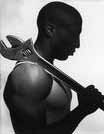|
|
||
|
Kiwanis Club |
||
|
|
"The history of Kiwanis and how it began is, in large part the story of how fellowship and service developed within an organization." |
|
|
|
Two men, both native Detroiters, Allen S. Browne , a professional organizer, and Joseph C. Prance, a tailor, began organizing a fraternal club that only young professional businessmen could join. In August of 1914 The Supreme Lodge of Benevolent Order Brothers was born. They wanted to provide an opportunity for other men to experience new ideals in human relationships. | |
| Kiwanis it was not. Membership was growing and the new members quickly grew tired of belonging to an organization known as BOB for short. A Native American phrase-"NunKee-Wan-is" was adapted as a name. |
|
|
| In 1920, Roe Fulkerson, editor of the Kiwanis magazine, came up with a phrase that the organization would adopt as it motto and inspiration. "We Build" brought Kiwanis into its stride and had truly crystalized the organization. "'We Build' became the force and inspiration for the important work of Kiwanis. With the founding of the Kiwanis Club in Detroit, the members discovered that they could spread their motto further, outside of the club and into the community. They could do so by providing important community service without scratching each other's backs. While the organization was beginning to reach out the community around them, the club its self was almost lost. Financial troubles in July of 1915 almost forced Kiwanis to halt. Club members did not approve of the way Allen S. Browne was financially running the club. Membership fees had reached $15 by that point and technically Allen S. Browne owned the Kiwanis club. Members were watching their truumphant club disentigrate before their very eyes and accusations were flying about Browne during the meeting. | ||
| Secrtary Ottie Robertson and Allen Browne, disgusted, left for Cleveland to organize a Kiwanis club there. Browne and Robertson started a club in Cleveland that held a membership of 135 in just ten weeks. It was here in Cleveland that Kiwanis service began its focus on children. |
|
|
| The new club started a nursery school for undrepriveledged children, while Don Johnston the president of the Detroit lodge was struggling to keep his club alive. It was a difficult time but Kiwanis survive. Continuing membership drives, the club was revived and brought back to full strength. Now with two major clubs in Detroit and Cleveland and with others on the way, Kiwanis was stronger than ever with continued growth. "Those first Kiwanians sensed the destiny of their small but spirited organization." | ||
| The six permanent Objects of Kiwanis International were approved by Kiwanis club delegates at the 1918 Convention in Providence, Rhode Island. Through the succeeding seventy-five years-plus, they have remained unchanged. |
To give primacy to the human and spiritual rather than to the material values of life. To encourage the daily living of the Golden Rule in all human relationships. To promote the adoption and the application of higher social, business, and professional standards. To develop, by precept and example, a more intelligent, aggressive, and serviceable citizenship. To provide, through Kiwanis clubs, a practical means to form enduring friendships, to render altruistic service, and to build better communities. To cooperate in creating and maintaining that sound public opinion and high idealism which make possible the increase of righteousness, justice, patriotism, and goodwill. |
|
| Today Kiwanis is a very charitable and community focused organization. The meetings that we were prividged enough to attended in both Birmingham and Pitssburgh were insightful and impressive. All the members are respectful of eachother and their ideas, giving the group an assertive mentality and serive foced motto. Organizations and charities for children set up by Kiwanis include Circle K, and Key Clubs. These clubs help children of all ages nurture a sense of community responsibility and self-esteam. | ||
|
"Raising funds to help the poor, participating in fellowship and giving something back to your commnity is the highest level of self-satisfaction you can ever encounter." |
||
|
|
||




